Unit6 Do you like bananas?Section A 1a-2d课件(共39张PPT)
文档属性
| 名称 | Unit6 Do you like bananas?Section A 1a-2d课件(共39张PPT) |  | |
| 格式 | zip | ||
| 文件大小 | 3.5MB | ||
| 资源类型 | 教案 | ||
| 版本资源 | 人教新目标(Go for it)版 | ||
| 科目 | 英语 | ||
| 更新时间 | 2022-08-02 17:47:19 | ||
图片预览

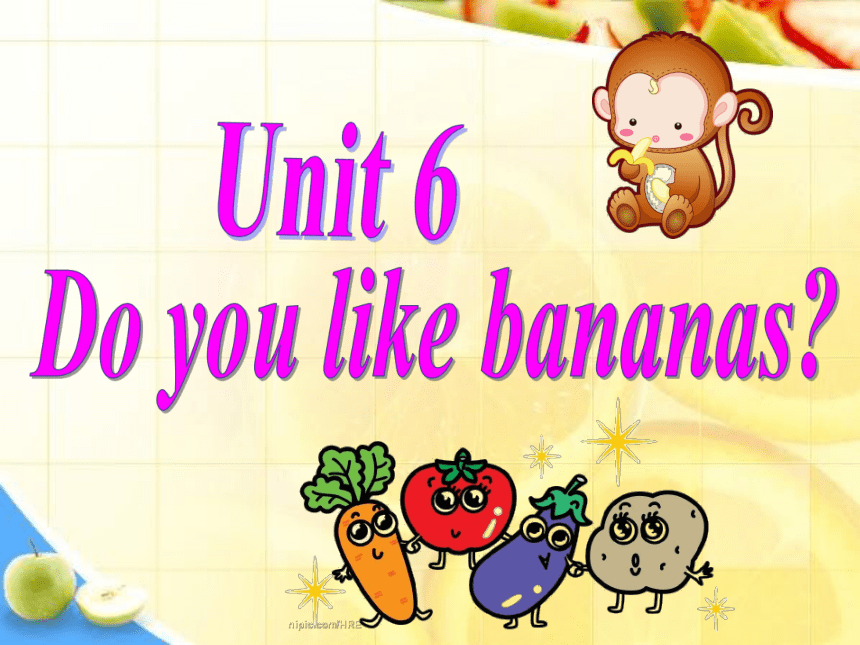
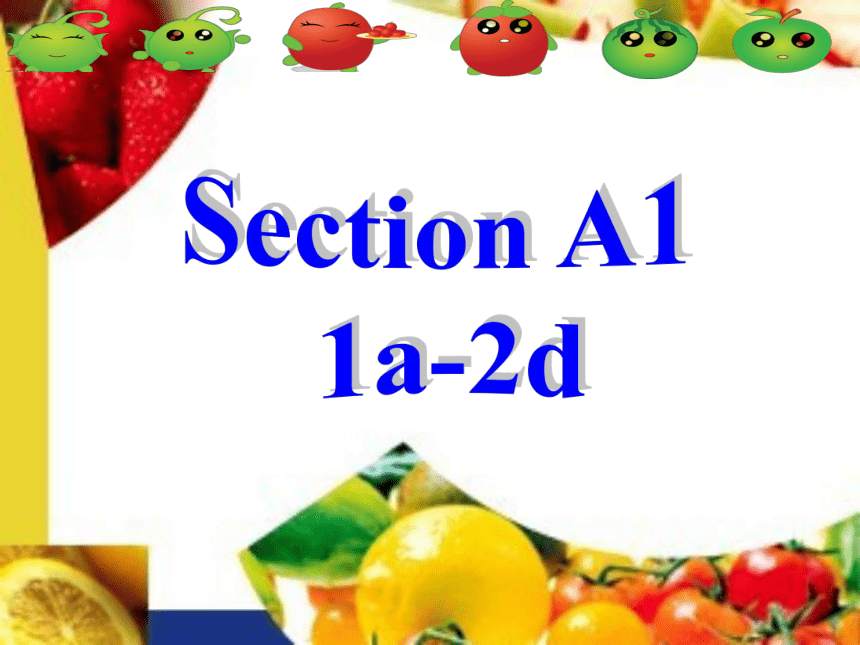
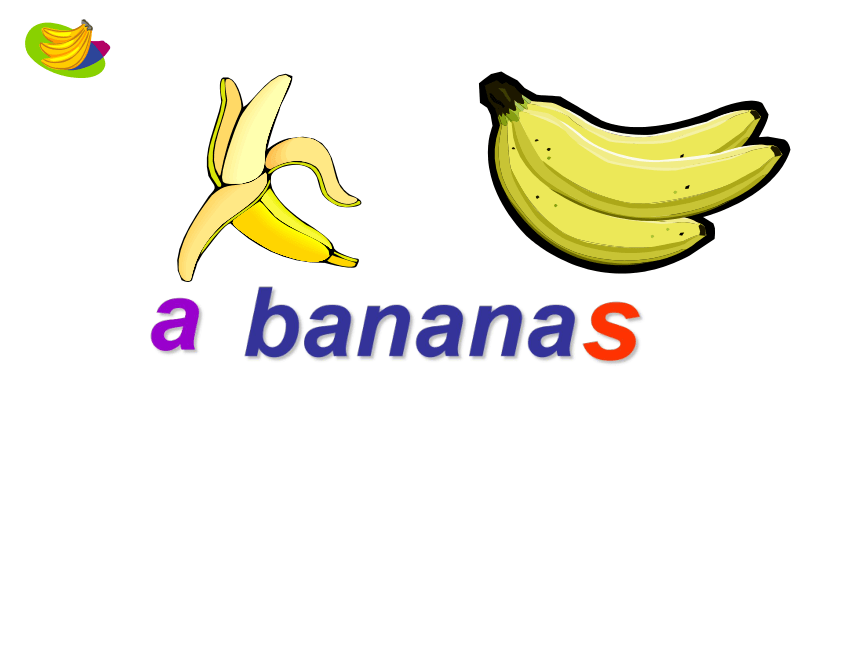
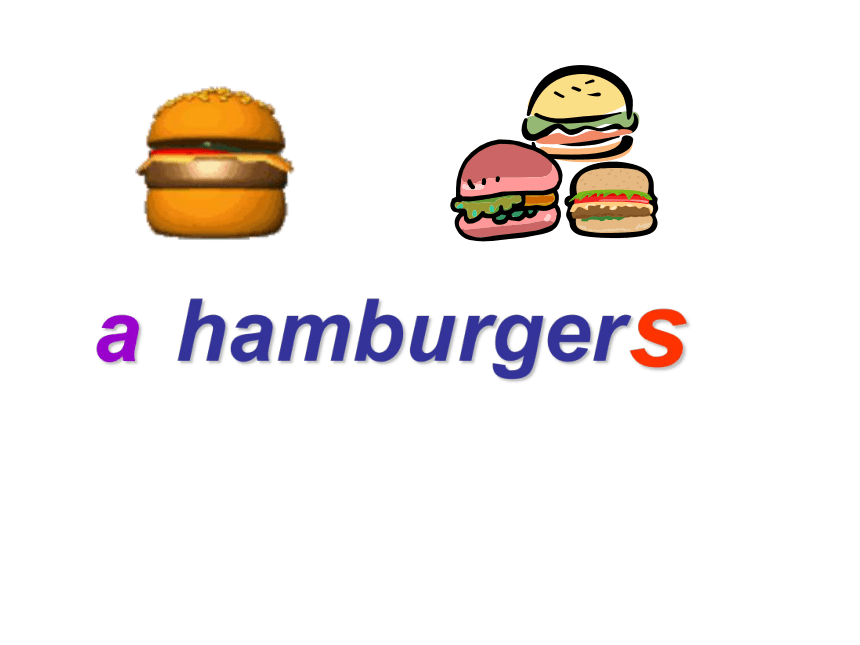
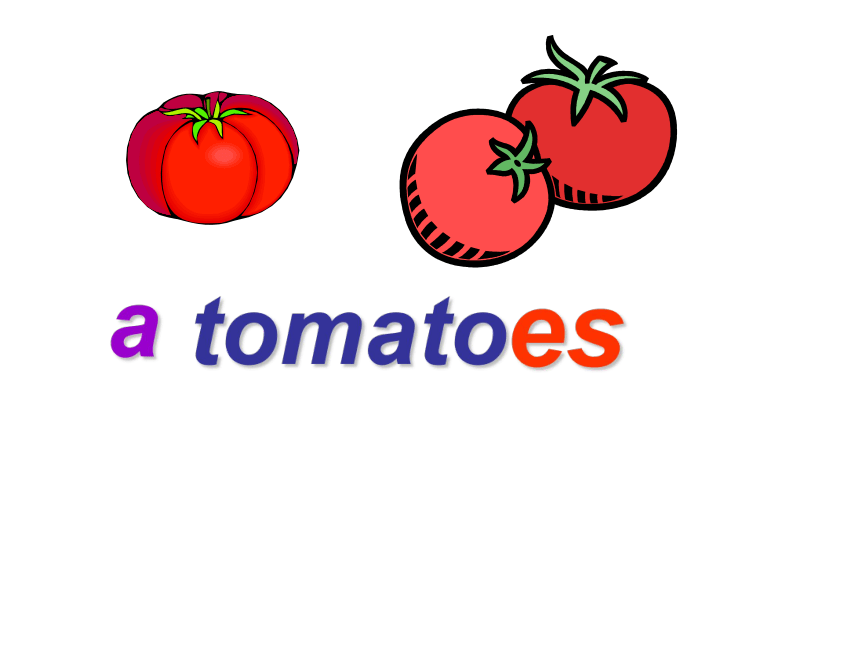
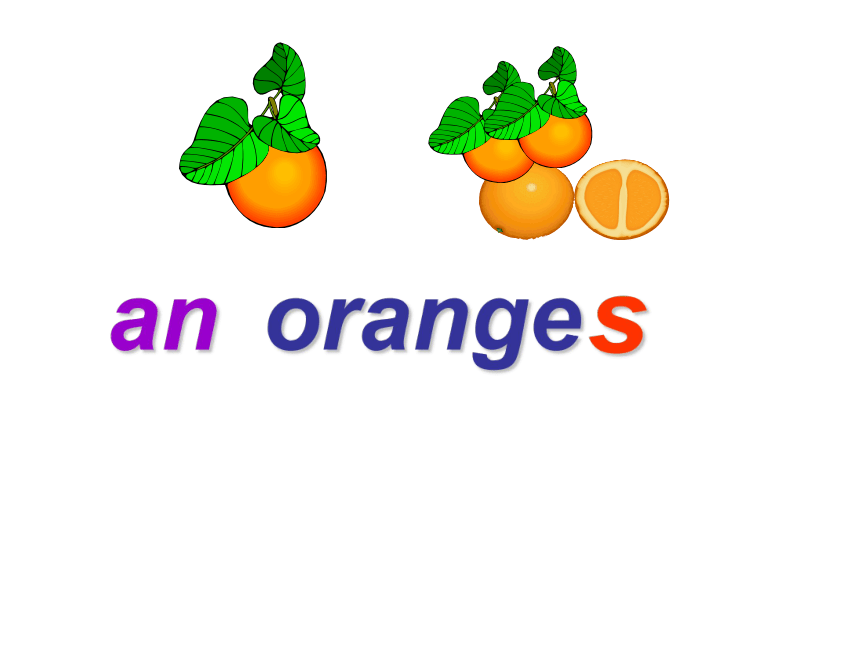
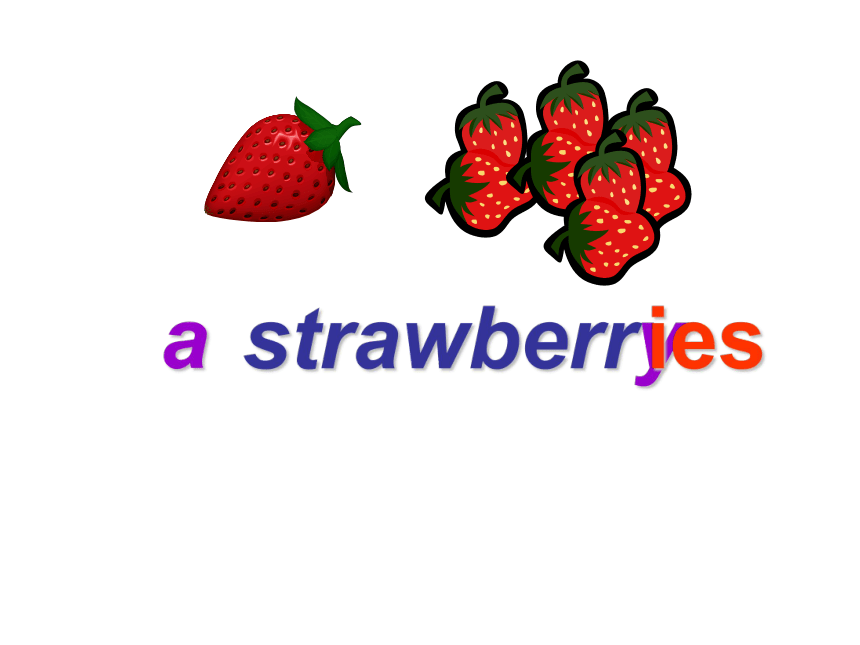
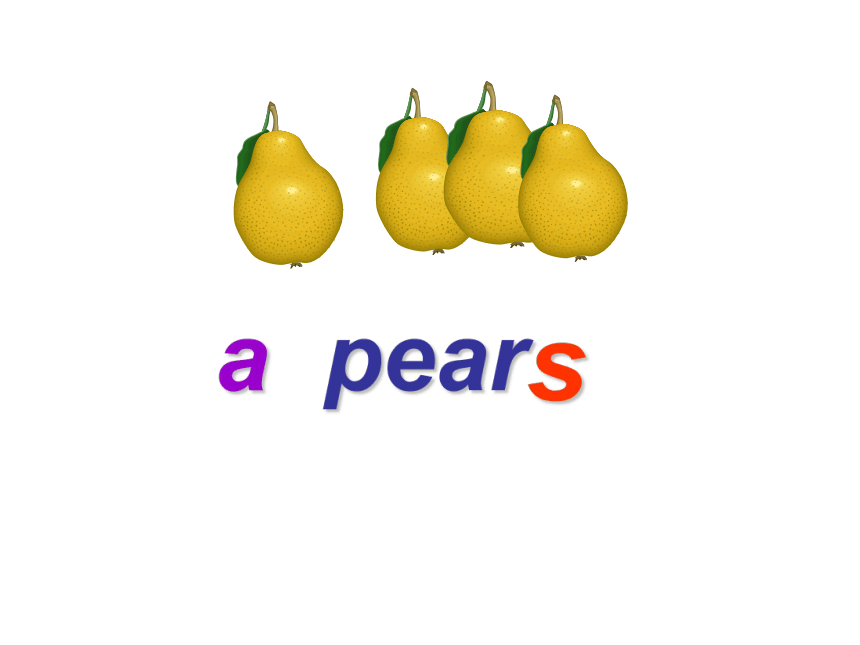

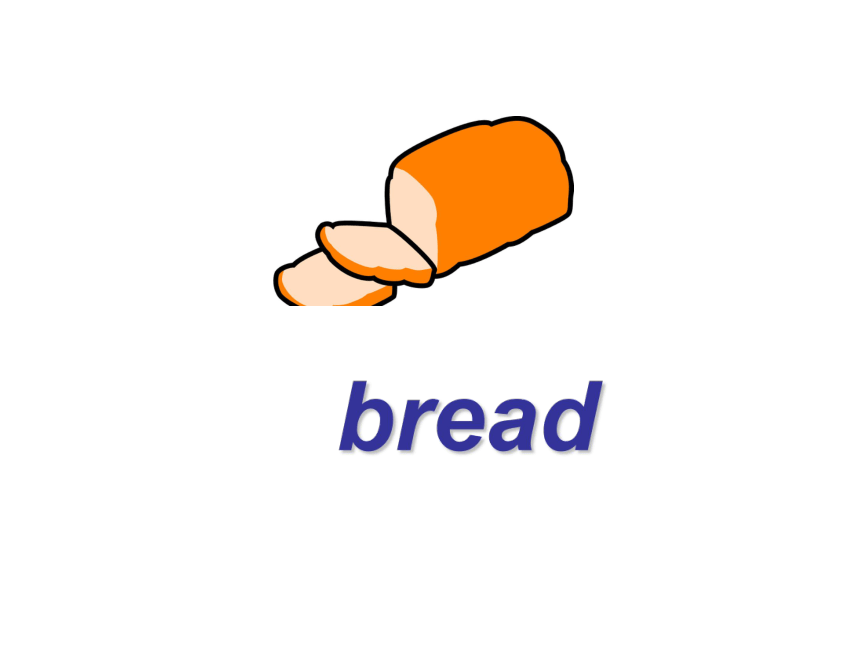
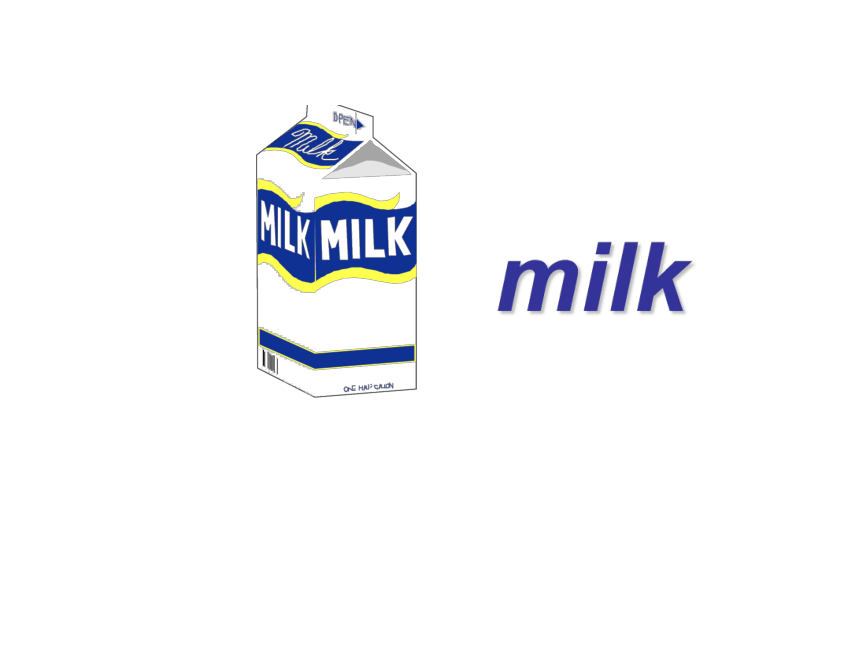
文档简介
(共39张PPT)
Unit 6
Unit 6
Do you like bananas
Section A1
1a-2d
banana
s
a
hamburger
s
a
tomato
es
a
an
orange
s
a
strawberr
y
ies
a
pear
s
ice-cream
bread
milk
salad
— What are those
— They are _____ ____.
bananas
oranges
tomatoes
strawberries
hamburgers
pears
bananas
oranges
tomatoes
strawberries
hamburgers
pears
— What’s that
— It’s __ ___.
salad
bread
ice-cream
milk
milk
bread
salad
ice-cream
hamburgers
tomatoes
oranges
ice-cream
salad
bananas
strawberries
pears
milk
bread
d
i
f
h
b
g
c
j
e
a
1a
Match the words with the things in the picture.
I like hamburgers.
Do you like hamburgers
Yes, I do.
I like bananas.
Do you like bananas
No, I don't.
I like strawberries.
Do you like strawberries
Yes, I do.
I like oranges.
Do you like oranges
No, I don't.
I like tomatoes.
Do you like tomatoes
Yes, I do.
I like pears.
Do you like pears
No, I don't.
I like ice-cream.
Do you like ice-cream
Yes, I do.
I like milk.
Do you like milk
No, I don't.
I like bread.
Do you like bread
Yes, I do.
Listen and number the conversations [1-3].
1b
A: Do you like salad
B: No, I don’t.
A: Do you like bananas
B: Yes, I do.
A: Do you like oranges
B: Yes, I do.
2
3
1
Listening
I like...
Do you like …
Yes, I do. /
No, I don’t.
Practice
Listen and circle the food you hear.
2a
hamburgers pears tomatoes strawberries
oranges ice-cream salad bananas
Listening
2b Listen again. Fill in the blanks.
tomatoes
tomatoes
ice cream
ice cream
3. Let’s have … 是一个祈使句,表示“让我们吃/喝……吧。”
Let’s have some ice-cream.
让我们吃些冰激凌吧。
have v. 吃,喝。
第三人称单数形式为has。
例句:
I have an apple every day.
我每天吃一个苹果。
[归纳] have是多义词,归纳如下:
(1) 有,拥有;如:
I have a new watch.
我有块新手表。
(2) 吃,喝;如:
Let’s have some milk and some bread.
让我们喝些牛奶,吃些面包。
(3) 构成固定短语:
have a good day
Bob doesn't like strawberries.
Does Tom like stawberries
Yes, he does.
He likes strawberries.
Tom
Bob
Bob likes ice-cream.
Does Tom like ice-cream
Bob doesn't like hambuegers.
Does Tom like hambuegers
Bob likes bananas.
Does Tom like bananas
No, he doesn't.
He doesn't like
bananas.
Yes, he does.
He likes hamburgers.
No, he doesn't.
He doesn't like
ice-cream.
--Does she like…
--Yes, she does. She likes ….
--No, she doesn’t. She doesn’t like ….
--Does he like…
--Yes, he does. He likes ….
--No, he doesn’t. He doesn’t like ….
Does John like hamburgers
What doesn't Jack like
What fruit does John like
Read the dialogue in 2d. Then answers the questions.
Reading
Yes, he does.
Jack doesn’t like salad.
John likes strawberries and apples.
Jack: Hey, John’s birthday dinner is next
week. Let’s think about the food.
Tom: Sure. How about burgers,
vegetable salad, and some fruit
Bill: Sounds good. John likes hamburgers.
Jack: Oh, I don’t like salad.
Bill: But John likes salad, and it’s his birthday.
Jack: Yes, you’re right. What about the fruit
Tom: I think John likes strawberries and apples.
Bill: OK. Let’s have strawberries and apples then.
2. How about … 相当于 What about … 意 为 “……怎么样?”是一个用来征询别人的 意 见、向别人提建议的交际用语。
How about nine o’clock 9点钟怎么样
I like strawberries. How about you
我喜欢草莓。你呢
4. sure adv. (用作副词)当然;肯定;一定
常用来回答一般疑问句,意为“当然; 的确”,相当于yes或certainly。只是 sure 在英国英语中较为常用,而在美国 英语中常用certainly。
— Are you going with us
你和我们一起去吗?
— Sure. 当然啦。
7. think about 思考,思索
Let me think about it.
让我想一想。
Unit 6
Unit 6
Do you like bananas
Section A1
1a-2d
banana
s
a
hamburger
s
a
tomato
es
a
an
orange
s
a
strawberr
y
ies
a
pear
s
ice-cream
bread
milk
salad
— What are those
— They are _____ ____.
bananas
oranges
tomatoes
strawberries
hamburgers
pears
bananas
oranges
tomatoes
strawberries
hamburgers
pears
— What’s that
— It’s __ ___.
salad
bread
ice-cream
milk
milk
bread
salad
ice-cream
hamburgers
tomatoes
oranges
ice-cream
salad
bananas
strawberries
pears
milk
bread
d
i
f
h
b
g
c
j
e
a
1a
Match the words with the things in the picture.
I like hamburgers.
Do you like hamburgers
Yes, I do.
I like bananas.
Do you like bananas
No, I don't.
I like strawberries.
Do you like strawberries
Yes, I do.
I like oranges.
Do you like oranges
No, I don't.
I like tomatoes.
Do you like tomatoes
Yes, I do.
I like pears.
Do you like pears
No, I don't.
I like ice-cream.
Do you like ice-cream
Yes, I do.
I like milk.
Do you like milk
No, I don't.
I like bread.
Do you like bread
Yes, I do.
Listen and number the conversations [1-3].
1b
A: Do you like salad
B: No, I don’t.
A: Do you like bananas
B: Yes, I do.
A: Do you like oranges
B: Yes, I do.
2
3
1
Listening
I like...
Do you like …
Yes, I do. /
No, I don’t.
Practice
Listen and circle the food you hear.
2a
hamburgers pears tomatoes strawberries
oranges ice-cream salad bananas
Listening
2b Listen again. Fill in the blanks.
tomatoes
tomatoes
ice cream
ice cream
3. Let’s have … 是一个祈使句,表示“让我们吃/喝……吧。”
Let’s have some ice-cream.
让我们吃些冰激凌吧。
have v. 吃,喝。
第三人称单数形式为has。
例句:
I have an apple every day.
我每天吃一个苹果。
[归纳] have是多义词,归纳如下:
(1) 有,拥有;如:
I have a new watch.
我有块新手表。
(2) 吃,喝;如:
Let’s have some milk and some bread.
让我们喝些牛奶,吃些面包。
(3) 构成固定短语:
have a good day
Bob doesn't like strawberries.
Does Tom like stawberries
Yes, he does.
He likes strawberries.
Tom
Bob
Bob likes ice-cream.
Does Tom like ice-cream
Bob doesn't like hambuegers.
Does Tom like hambuegers
Bob likes bananas.
Does Tom like bananas
No, he doesn't.
He doesn't like
bananas.
Yes, he does.
He likes hamburgers.
No, he doesn't.
He doesn't like
ice-cream.
--Does she like…
--Yes, she does. She likes ….
--No, she doesn’t. She doesn’t like ….
--Does he like…
--Yes, he does. He likes ….
--No, he doesn’t. He doesn’t like ….
Does John like hamburgers
What doesn't Jack like
What fruit does John like
Read the dialogue in 2d. Then answers the questions.
Reading
Yes, he does.
Jack doesn’t like salad.
John likes strawberries and apples.
Jack: Hey, John’s birthday dinner is next
week. Let’s think about the food.
Tom: Sure. How about burgers,
vegetable salad, and some fruit
Bill: Sounds good. John likes hamburgers.
Jack: Oh, I don’t like salad.
Bill: But John likes salad, and it’s his birthday.
Jack: Yes, you’re right. What about the fruit
Tom: I think John likes strawberries and apples.
Bill: OK. Let’s have strawberries and apples then.
2. How about … 相当于 What about … 意 为 “……怎么样?”是一个用来征询别人的 意 见、向别人提建议的交际用语。
How about nine o’clock 9点钟怎么样
I like strawberries. How about you
我喜欢草莓。你呢
4. sure adv. (用作副词)当然;肯定;一定
常用来回答一般疑问句,意为“当然; 的确”,相当于yes或certainly。只是 sure 在英国英语中较为常用,而在美国 英语中常用certainly。
— Are you going with us
你和我们一起去吗?
— Sure. 当然啦。
7. think about 思考,思索
Let me think about it.
让我想一想。
同课章节目录
- starters 预备篇(2012秋审查)
- Unit 1 Good morning !
- Unit 2 What’s this in English?
- Unit 3 What color is it ?
- Unit 1 My name's Gina.
- Section A
- Section B
- Unit 2 This is my sister.
- Section A
- Section B
- Unit 3 Is this your pencil?
- Section A
- Section B
- Unit 4 Where's my schoolbag?
- Section A
- Section B
- Unit 5 Do you have a soccer ball?
- Section A
- Section B
- Unit 6 Do you like bananas?
- Section A
- Section B
- Unit 7 How much are these socks?
- Section A
- Section B
- Unit 8 When is your birthday?
- Section A
- Section B
- Unit 9 My favorite subject is science.
- Section A
- Section B
